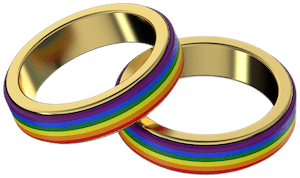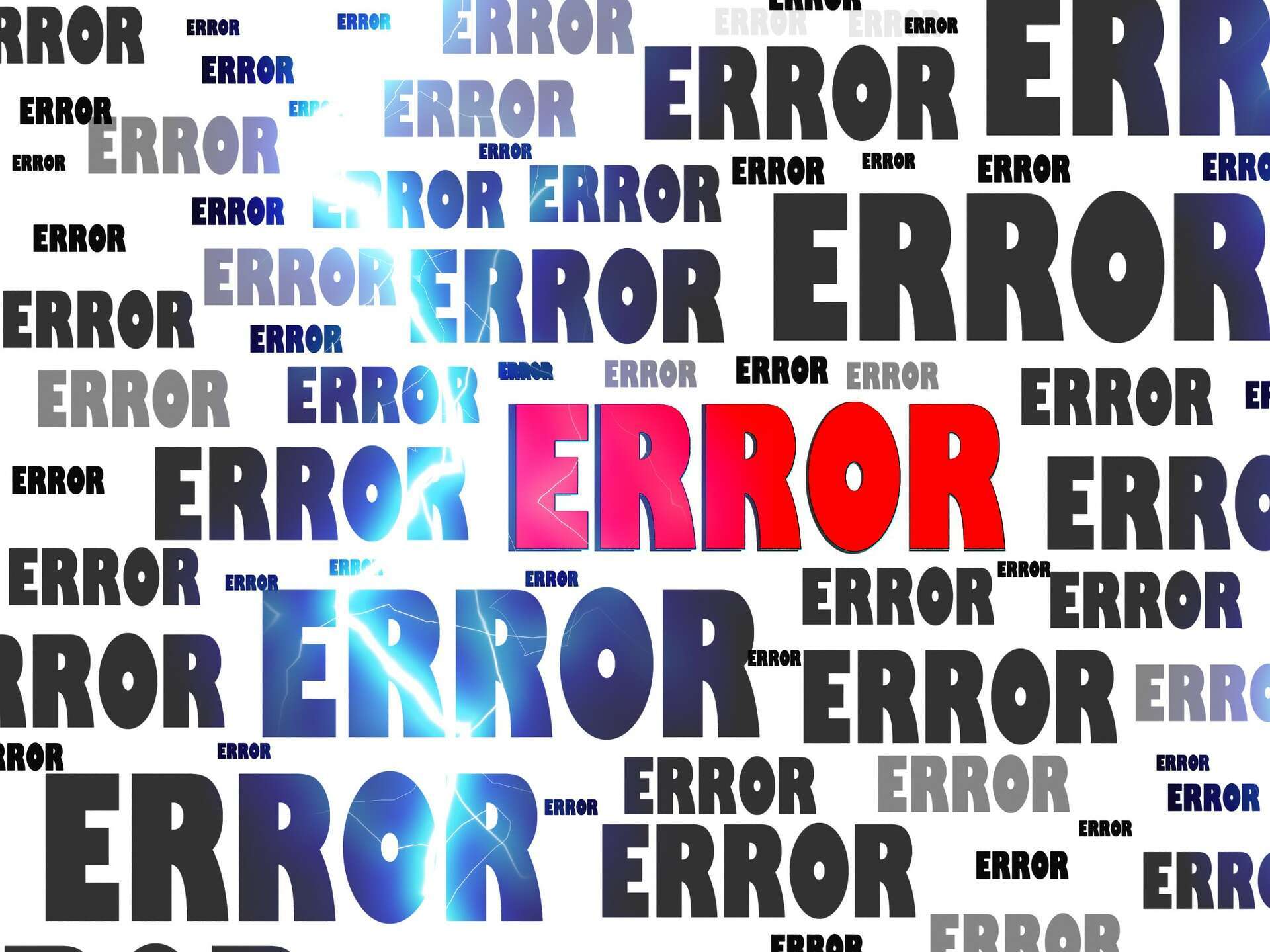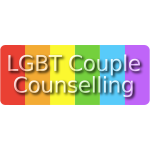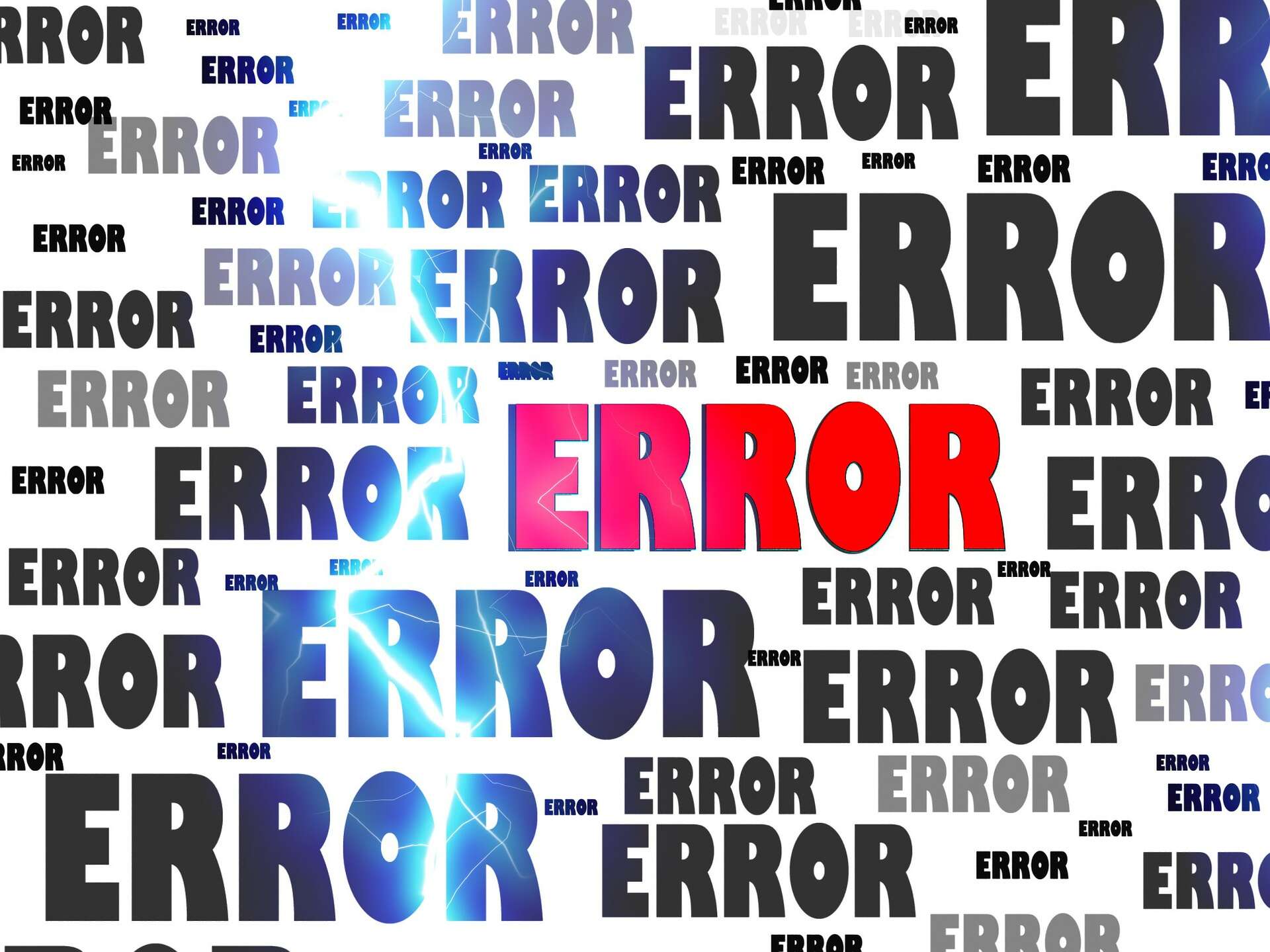Intro to LGBTQ+ Couple Counselling Myths
I’m sure the topic of Couple Counselling for our LGBTQ+ community conjures up at least one or two scary images and ideas in your mind. Fearful thoughts about what a couple counsellor would “do” to your relationship, or what horror exercises they would ask you to do.
Maybe you have hopes about what counselling could try to accomplish too, but the myths in your head holds back both you and your partner.
Let me assure you that there are many LGBTQ+ couples that came before you who have gone through couple therapy together. A good handful of them were relieved to find they had some misunderstandings and myths about the counselling process.
Is one of your misconceptions or myths not on this list?
[Add it in the comments below] and Dean will answer your concerns…
If you’re one of the many couples who are considering counselling for relationship problems, but you have worries or concerns that are holding you back, I hope that the following myths and misconceptions (and my clarifications!) will help relieve your anxiety, and show you how appropriate and helpful couple counselling can be for queer partners’ needs.
Clarifying Myths…
Remember… as you read these points, each one is a misconception about couple counselling (the myth is either wholly or partially untrue). I’ve added commentary in italics to help explain each point.
- Couple Counselling is for heterosexual partnerships only. The original form of couple therapy (systemic/psychodynamic family therapy designed by the Milan Associates) was agnostic towards sexual orientation. The focus was on how family members behave with each other. The same applies to LGBTQ+ Couple Counselling, yet we respect and acknowledge that non-heteronormative relationships have distinct demands and needs according to each partner’s identification. Couples Counselling is very much for LGBTQIA++ relationships, and a specialist LGBTQ+ Counsellor has additional qualities beyond a general counsellor.
- Couple counselling’s sole purpose is to save the relationship / marriage. No, it is not. Couple counselling starts with a discussion with the partners about what they want from the work that is to come. The couple’s agreed objective is subject to alter at any time during the work.
- Couple Counselling is only for couples in crisis. Nope – couples wishing to plan (for) some changes (a birth, a death, opening their relationship etc) can make good use of couple counselling.
- LGBTQ+ Couple Counselling is a scam for ‘Conversion Therapy’. Absolutely not. Couples counselling for LGBTQIA+ relationships is a queer-positive process that respects you and your partner’s sexuality and gender identity.
- Only couples in a bad relationship go to counselling. Couples in “good” relationships can make use of therapeutic conversations, too.
- Counselling is only available if a couple have tried everything else first. Counselling cannot resurrect a relationship that is, to all intents and purposes, ended. It’s a better idea to not leave counselling to the very last moment or consider it after everything else failed.
- The couple therapist will fix one partner to the other’s satisfaction. The counsellor will not (actually cannot) change anyone, but maybe we can talk about what changes you’d like to see in your partner if she/he is willing to engage with your requests.
- Counselling stops when someone wants to end the relationship. If both partners come to a mutual decision to end their relationship, counselling is supportive in helping them achieve this too. However, if one person does not return to counselling, the remaining partner is not cast out.
- Only the partner who is the problem needs to do the counselling, the other can either sit in the room and watch (being supportive) or stay at home. Couple counselling is a therapeutic process for two people – no observers. It’s ideal for you both to bring your relationship together into the counselling session because both of you are effected.
- It’s about finding all the faults, and then fixing them. Maybe a little sometimes. But we can look at the behaviour happening in the relationship with interest and curiosity, without having to identify (or “point” at) faults or those who-are-at-fault.
- The therapist will pick a side (e.g. a male therapist will side with the man in the marriage, or with the woman if he fancies her etc). Couple counsellors (working in a systemic model of therapy) maintain a position of neutrality. The counsellor does not take sides.
- The therapist’s belief is that the couple’s relationship must continue at all costs. This isn’t the therapist’s belief to hold; he follows what the couple themselves want, even if the couple change their decision (sometimes several times) during the work.
- The therapist is a judge and each partner will plead their case to him and he will make a decision on their behalf. To me this sounds more like arbitration; it’s not couple counselling. The counsellor may have observations which he may share with the couple for their use. He will not make judgements (declaring a “winner”).
- Couple therapy cannot take place when one or both partners are in individual therapy. Couple therapy is compatible with individual therapy. Couple therapy focusses more on working with the couple’s relationship, and less with one or both individuals’ personal needs.
- The couple must be facing a break-up if the want to go into counselling. Not at all; counselling can help manage all sorts of difficulties that are unrelated to a break-up.
- If the couple continue to argue outside of the therapy, then it’s not working. If I say to you that homework might involve having an argument {and make observations for discussing in a next session}…? A couple may bring their argument into counselling for discussion, curiosity, and to learn what it’s really about.
- The couple aren’t allowed to argue in session. The counsellor cannot prevent arguments, but he may discuss with the couple (a) how they might interrupt an argument (if they wish to), (b) when they might like the counsellor to interrupt an argument (if they wish him to).
- The therapist will prescribe to the couple how they are to fix their problems (aka tell them what to do). The therapist is a skilled facilitator with knowledge of relationship psychology and abilities to help the couple see what they’ve not seen before. He’s also not a kind of GP (doctor, to non-UK readers) who prescribes solutions to relationship-illnesses.
- Only one person is the problem; the other is without fault. The counsellor will identify which one. Thinking about a system, parts of the system work together to produce an outcome. Sometimes a system is faulty and usually it’s a collection of matters (one behaviour leads to another behaviour in response). A relationship is a system too with behaviours that can be tuned or improved upon. Identify one person as the fault seems unhelpful.
- (Domestic Abuse) the abuser is the one at fault, the other is innocent. In reality, the couple can work together on ceasing abuse.
- All couples can benefit from couple counselling. Unfortunately, some couples cannot be helped; perhaps because they do not wish to embrace any change, are stuck in blaming the other, a partner won’t recognise the part they plan etc.
- The couple can only use therapy if the crisis is happening right now. Actually, discussing a crisis when it’s not happening can give the couple space for clear thought, and can support inspiration for changes that might be considered. Sometimes crises that had occurred many years ago can be discussed in counselling.
- Counselling finishes when the problem has / all the problems have gone away. Actually [systemic / psychodynamic] couple counselling assist the couple in creating processes to manage their problems more autonomously. The gain the ability to manage their own problems. A couple is welcome to leave counselling with ongoing problem(s), but with them managing their needs better than before.
- It’s only an excuse for a partner to justify their decision to divorce – to gain information for their solicitor. It could be, but this isn’t the main rationale for couples entering counselling; that would be a person trying to use counselling in a manner in which it is not intended.
- The relationship is already over before a couple enter counselling. Not strictly true if we’re referring to the counselling process, as a new(er) relationship can be forged between the couple. It is true that counselling cannot/will not rescue a relationship where one or both partners have decided they want to separate.
- Couple counselling is way to get information about the partner before a divorce. The systemic approach to counselling is not conducive to gaining information for a divorce, apart from the fact the seeker would hold a hidden agenda and would be behaving dishonestly.
- If we go to counselling, the counsellor can be a witness in a divorce settlement. Counsellors are aware of the law and requests that solicitors may make for their notes, etc. As the counsellor remains neutral through a counselling case, his neutrality makes him rather useless if one party is seeking him to give evidence detrimental to the other partner.
- I can keep a secret agenda away from the counselling. You don’t have to reveal anything you don’t want to in counselling. However, if you have an agenda that’s going contrary to the purpose of the counselling (e.g. you want to separate, but you’re saying that you want to stay together), the counselling process will notice something “isn’t quite right”, to coin a phrase, and may very well struggle to be of much help to the couple.
- The counsellor’s notes about your partner can be requested in a GDPR request. Most counsellors write process notes, but not all document them using a permanent medium. When notes that are about couple’s relationship, a GDPR data request will require both parties’ permission, and only the data given to the counsellor may be requested (i.e. the counsellor’s private opinions or process notes are not privy to others) .
- It’s a Religious Scam. Admittedly, I have seen several adverts on Social Media that promotes the therapy service as being orientated towards “the biblical definition of marriage”. This service, however, is secular and whilst it respects your religious beliefs it imposes no religious agenda.
(Thank you to Dr. Sue Johnson on Twitter for inviting the conversation: “What’s the biggest misconception about couple therapy?” – 23rd August, 2022. Go take a look at the latest comments).











0 Comments